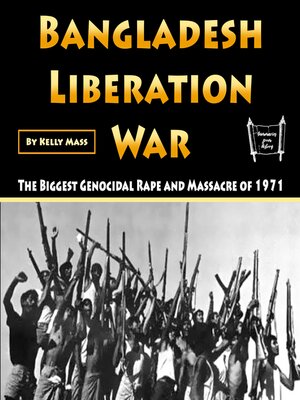Bangladesh Liberation War
audiobook (Unabridged) ∣ The Biggest Genocidal Rape and Massacre of 1971
By Kelly Mass

Sign up to save your library
With an OverDrive account, you can save your favorite libraries for at-a-glance information about availability. Find out more about OverDrive accounts.
Find this title in Libby, the library reading app by OverDrive.



Search for a digital library with this title
Title found at these libraries:
| Library Name | Distance |
|---|---|
| Loading... |
This audiobook is narrated by a digital voice.
The creation of Pakistan in 1947 as a homeland for the Muslims of the Indian subcontinent carried within it the seeds of its own division, as the new nation comprised two geographically separated territories with distinct languages, cultures, and economic structures that were united only by religion and the shared experience of partition from India. East Bengal, which would later become Bangladesh, was separated from West Pakistan by over a thousand miles of Indian territory, creating logistical challenges and fostering a sense of isolation that would grow into resentment over the following decades. The artificial nature of this arrangement became apparent almost immediately as the two wings of Pakistan began to diverge in their political aspirations and economic interests.
The language controversy that erupted in the early years of Pakistan's existence revealed the fundamental tensions between the Bengali-speaking majority in East Pakistan and the Urdu-speaking elite who dominated the new nation's political and military establishment. When Pakistan's founder Muhammad Ali Jinnah declared in 1948 that Urdu would be the sole state language of Pakistan, he ignited protests throughout East Bengal where Bengali was spoken by over 98 percent of the population. The language movement that emerged in response to this declaration became the first major expression of Bengali nationalism within Pakistan and established patterns of resistance that would eventually culminate in the independence struggle of 1971.
The economic exploitation of East Pakistan by the West Pakistani establishment created deep grievances that fueled the growing independence movement throughout the 1950s and 1960s. Despite contributing the majority of Pakistan's foreign exchange earnings through jute and tea exports, East Pakistan received only a fraction of development spending and was systematically excluded from key industries and infrastructure projects.







